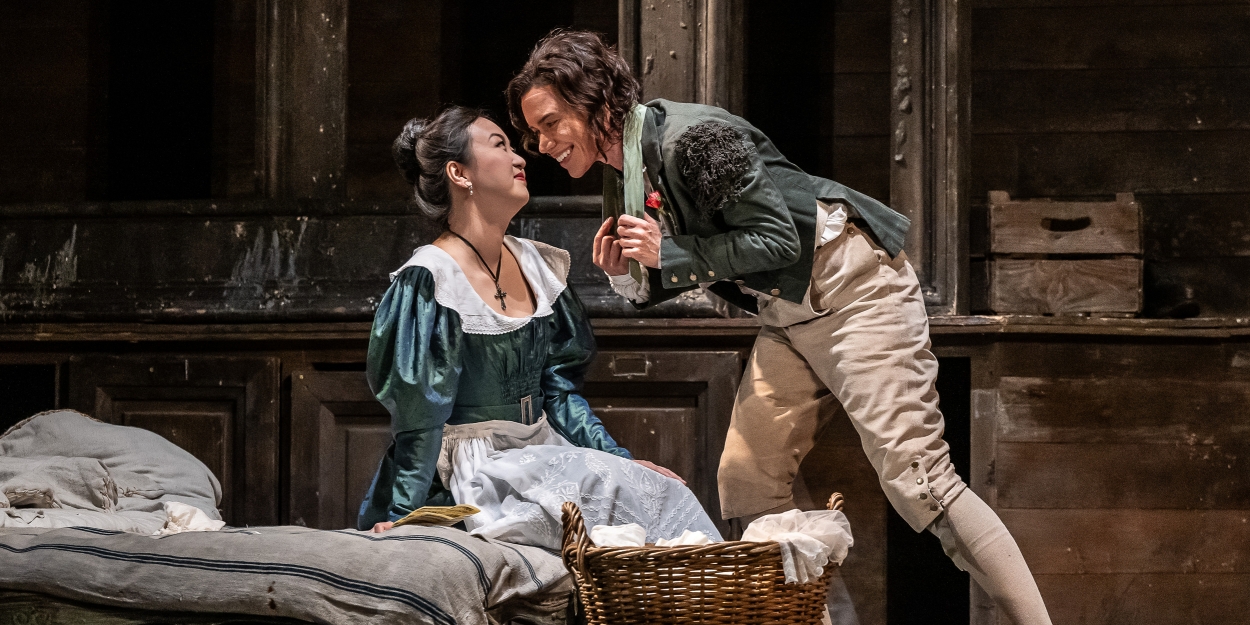Review: THE MARRIAGE OF FIGARO, Royal Ballet and Opera
A classic production of a classic opera marks two fine Covent Garden debuts

 It’s all change at the (checks notes) Royal Ballet and Opera, with a new name - admirably simple - and, shockingly, a new font for the programme! Though I will join thousands in inadvertently still referring to The Royal Opera House (expect scowls from dancers, smirks from singers), it’s been a shared space for decades, so it’s about time it says what it does on the tin.
It’s all change at the (checks notes) Royal Ballet and Opera, with a new name - admirably simple - and, shockingly, a new font for the programme! Though I will join thousands in inadvertently still referring to The Royal Opera House (expect scowls from dancers, smirks from singers), it’s been a shared space for decades, so it’s about time it says what it does on the tin.
Change for your reviewer too, who last saw David McVicar’s 2006 production some nine years ago in a beautifully crafted cinema presentation (you can too - see below), but this time I’m in the room where it happens.
Of course, some things don’t change. Mozart, with The Marriage of Figaro to the fore, will always be popular, the entertainer who spiced up his operas with a more edgy transgressive streak than William Gilbert and Arthur Sullivan did 100 years later, the Englishmen almost cuddly by comparison.
The Austrian’s allusions to a topsy-turvy world would be made brutally real just a couple of years after this opera’s 1787 premiere across the border in France. No wonder, for all the pantomimeish confusions, disguises and subterfuges that drive the plot, the censor saw a challenge to the status quo and more than just a hint of rebellion. We do too, but in a different world (less different all the time mark you) the conflicts that animate the story may be less about class and more about gender.
.jpg)
Count Alamaviva (a strutting, threatening but comical Huw Montague Rendall) has abolished droit du seigneur, the most #MeTooist of #MeToo customs, which allowed the Lord of the Manor ‘access’ to a vassal's bride on the night before her wedding day. He enjoys the understandable warm reception the decision received, but now he’s hankering after Susanna, his neglected countess’s maid, a soon-to-be wife of Figaro, his valet. The woman who wants to be in his bed and the woman who does not, plot to bring down the Count’s towering sense of entitlement and with a bit of help from Figaro, who isn’t quite as smart as he thinks he is, and the blundering interventions of the page boy, Cherubino, comeuppance is eventually served.
It’s all terribly convoluted for 21st century tastes, but it never stops being fun and we can feel the frisson of fear that must have chilled the Viennese aristocracy to see their avatars on stage brought low by conniving and clever servants and women, forming an alliance of the powerless. Mozart would have had plenty of influence over Lorenzo Da Ponte’s libretto, an adaptation of a contemporary hit play, and a genius, if not a count, makes their own rules.
It’s lovely to see Maria Bengtsson’s subtle shift in demeanour from unhappy, fearful wife to strong, confident woman, as she trusts her maid’s wit and wisdom and acquires plenty of her own in snaring her philandering husband. Her turning point is the celebrated aria, “Dove sono” that Bengtsson, a late replacement for Jacquelyn Stucker, delivers with a well-judged pathos.
Luca Micheletti’s baritone is more useful in the early scenes, but Figaro, despite his name being in the title, does fade a little from the action after wriggling off the various hooks on which he finds himself with his intellectually outgunned master. Peter Kalman and Rebecca Evans have lots of larks with the ageing Bartolo and Marcellina, who prove to be rather different people than expected.
The stars of the show (is that a little too trite a phrase for opera, even at its most buffa - I think not) are two Covent Garden debutants, Ginger Costa-Jackson and Ying Fang.
In the trouser-role of Cherubino, Costa-Jackson proves herself to be a fine physical comedienne, boyish in looks and movement, moonish in the adolescent boy’s crush on the countess, but, when the vocal chops are required, in showstopping form with “Voi che sapete che cosa è amor” - showing that the teenager is acquiring the first stages of the self-awareness he’ll need to calm the raging hormones.
This may be soprano, Ying Fang’s, first appearance on this stage but it won’t be her last. The Chinese soprano wholly convinces in the role of the whip-smart servant, charisma and talent filling the house, astonishing from so slight a physical presence. Her “Giunse alfin il momento – Deh vieni non tardar” is the vocal high point of an evening not short on competition and her rapturous reception at the curtain was well-earned.
Roll in some fine work from the chorus, Tanya McCallin’s spectacular sets, Paule Constable’s limpid lighting and Julia Jones’s precise, unshowy orchestra and what’s not to like? Nothing, but one wonders if more can be done with a plot that concerns a predatory man being taken down in a workplace by his would-be victims. New programme fonts or not, the main stage at this venue is not best suited to radical re-interpretations of classics, but a filtering in of 2024’s changing sensibilities would not harm the classic work - it might even enhance it.
The Marriage of Figaro at The Royal Opera until 15 September and in cinemas from 10 September
Photo Credits: Clive Barda
Reader Reviews
Videos

